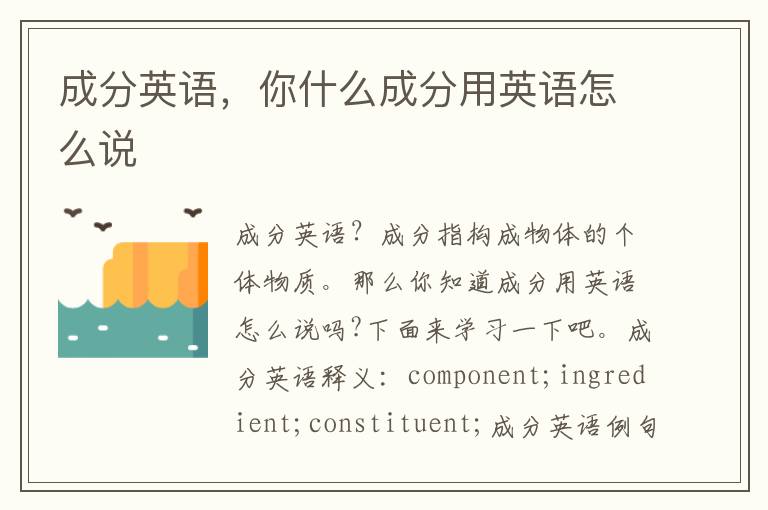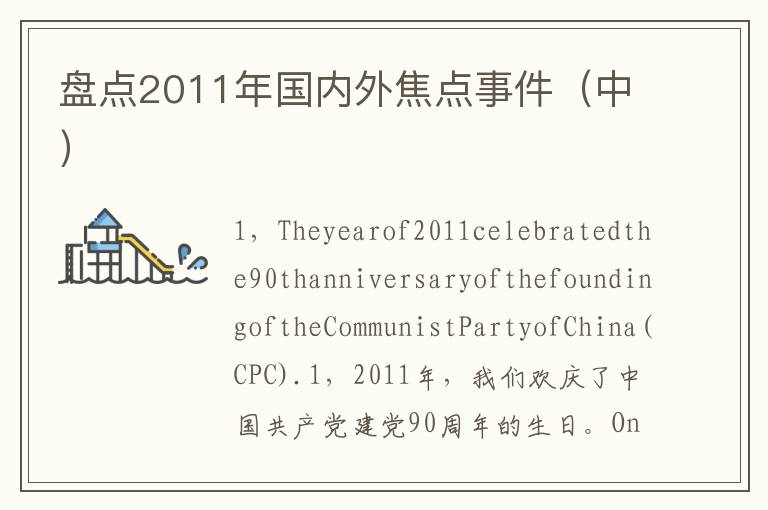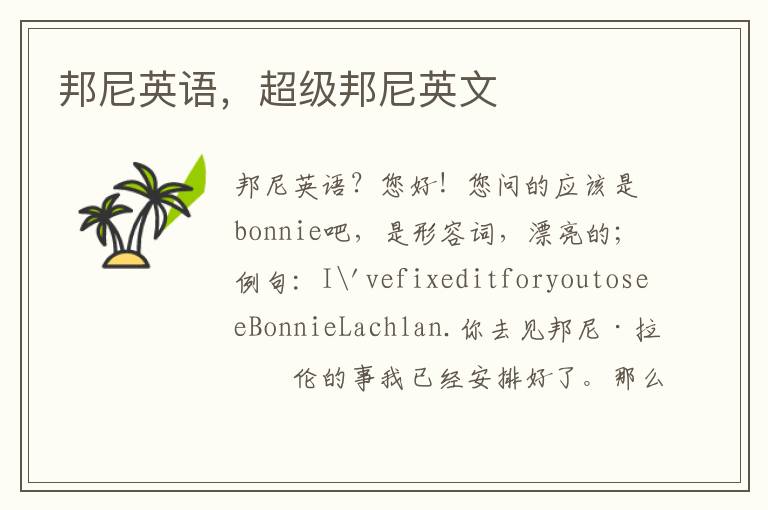【简介】感谢网友“雕龙文库”参与投稿,这里小编给大家分享一些[db:SEO标题],方便大家学习。
It is not difficult to imagine a world short ofambition(野心,抱负). It would probably be a kinder world: without demands, withoutabrasions(擦伤,磨损), without disappointments. People would have time for reflection. Such work as they did would not be for themselves but for thecollectivity(集体). Competition would never enter in. Conflict would be eliminated, tension become a thing of the past. The stress of creation would be at an end. Art would no longer be troubling, but purelycelebratory(快乐的)in its functions. Longevity would be increased, for fewer people would die of heart attack or stroke caused bytumultuous(吵闹的)endeavor. Anxiety would be extinct. Time would stretch on and on, with ambition long departed from the human heart.
Ah, howunrelieved(未减轻的)boring life would be!
There is a strong view that holds that success is a myth, and ambition therefore asham(假装,骗子). Does this mean that success does not really exist? That achievement is at bottom empty? That the efforts of men and women are of no significance alongside the force of movements and events now not all success, obviously, is worth esteeming, nor all ambition worth cultivating. Which are and which are not is something one soon enough learns on one’s own. But even the most cynical secretly admit that success exists; that achievement counts for a great deal; and that the true myth is that the actions of men and women are useless. To believe otherwise is to take on a point of view that is likely to bederanging(扰乱). It is, in its implications, to remove all motives for competence, interest inattainment(成就), and regard forposterity(子孙).
We do not choose to be born. We do not choose our parents. We do not choose our historicalepoch(新纪元), the country of our birth, or the immediate circumstances of ourupbringing(教养). We do not, most of us, choose to die; nor do we choose the time or conditions of our death. But within all thisrealm(领域)of choicelessness, we do choose how we shall live: courageously or incowardice(怯懦), honorably or dishonorably, with purpose or in drift. We decide what is important and what istrivial(不重要的)in life. We decide that what makes us significant is either what we do or what we refuse to do. But no matter how indifferent the universe may be to our choices and decisions, these choices and decisions are ours to make. We decide. We choose. And as we decide and choose, so are our lives formed. In the end, forming our own destiny is what ambition is about.
It is not difficult to imagine a world short ofambition(野心,抱负). It would probably be a kinder world: without demands, withoutabrasions(擦伤,磨损), without disappointments. People would have time for reflection. Such work as they did would not be for themselves but for thecollectivity(集体). Competition would never enter in. Conflict would be eliminated, tension become a thing of the past. The stress of creation would be at an end. Art would no longer be troubling, but purelycelebratory(快乐的)in its functions. Longevity would be increased, for fewer people would die of heart attack or stroke caused bytumultuous(吵闹的)endeavor. Anxiety would be extinct. Time would stretch on and on, with ambition long departed from the human heart.
Ah, howunrelieved(未减轻的)boring life would be!
There is a strong view that holds that success is a myth, and ambition therefore asham(假装,骗子). Does this mean that success does not really exist? That achievement is at bottom empty? That the efforts of men and women are of no significance alongside the force of movements and events now not all success, obviously, is worth esteeming, nor all ambition worth cultivating. Which are and which are not is something one soon enough learns on one’s own. But even the most cynical secretly admit that success exists; that achievement counts for a great deal; and that the true myth is that the actions of men and women are useless. To believe otherwise is to take on a point of view that is likely to bederanging(扰乱). It is, in its implications, to remove all motives for competence, interest inattainment(成就), and regard forposterity(子孙).
We do not choose to be born. We do not choose our parents. We do not choose our historicalepoch(新纪元), the country of our birth, or the immediate circumstances of ourupbringing(教养). We do not, most of us, choose to die; nor do we choose the time or conditions of our death. But within all thisrealm(领域)of choicelessness, we do choose how we shall live: courageously or incowardice(怯懦), honorably or dishonorably, with purpose or in drift. We decide what is important and what istrivial(不重要的)in life. We decide that what makes us significant is either what we do or what we refuse to do. But no matter how indifferent the universe may be to our choices and decisions, these choices and decisions are ours to make. We decide. We choose. And as we decide and choose, so are our lives formed. In the end, forming our own destiny is what ambition is about.






